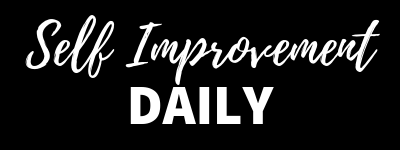
The first aspect of these memory improvement tips is to ensure that the information that needs to be retrieved from the memory, has actually gotten in there in the first place. These techniques can be used to help with long term memory as well as short term memory loss.
1. CONSCIOUSLY PAY ATTENTION TO EVERYDAY TASKS
Observation is the key here. Say it loudly as you do the task, if it helps. Involve as many senses as it makes sense.
By doing so, if the information does not get registered in our mind by the perception of one sense organ, your brain may just pick up the signals dissipated by your other sense organs.
So what we are doing here, in essence, is attempting to improve concentration on the task at hand. Because lack of concentration is, in fact, one of the commonly perceived causes of memory loss.
FOR INSTANCE..
Occasionally you may have wondered whether you had locked the front door on your way out or not. As you lock your front door the next time, to avoid forgetting that you did, you can do a combination of the following:
Consciously feel the keys in your hand, look at them as you lock, hear the “click” as it locks, or say loudly “I have just locked the door”.
By improving concentration on the task at hand in this manner, you have just minimized the chances of the event not registering in your mind. And since the event would have gotten into your mind, you have thereby increased your chances of recalling it later if need be.
If you find your concentration is not up to mark, you may try natural supplements designed specifically to improve concentration. One such remedy is Focus Adult
. This is a herbal supplement that can help enhance your concentration, focus and attention span – and it works for both teens and adults.
2. REPEAT IMMEDIATELY WHAT NEEDS TO BE MEMORIZED
Nothing hammers down information into the memory lane like repetition does.
Most people forget most of the information they just learned, within the first few minutes that immediately follow (unless any of the memory improvement techniques are applied, consciously or unconsciously).
As soon as the information leaves your short-term memory, it is most likely gone forever. So the first few minutes after you receive the new information, is critical for applying the repetition technique.
FOR INSTANCE..

A classic situation for using this technique is for remembering the name of a person you just met.
Say the name back to the person as soon as they are introduced to you. Use it a few times in the conversation, without making it too obvious. Say it again at the end of the conversation.
By repeating thus, you are increasing the chances that their name has gotten into your mind, and can be summoned later as needed.
RELATED ARTICLES
- Association and Visualization Techniques
- 7 Ways to Improve Your Memory
- Easy Ways to Increase Your Memory
- Memory Tips for College Students
- Good Things Come in Threes
- Test Studying Tips
- Pegging and Note Taking Systems
- Great Way to Remember Things


